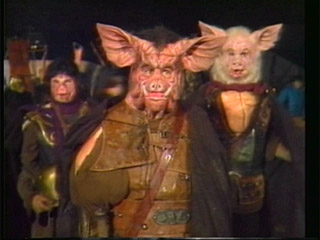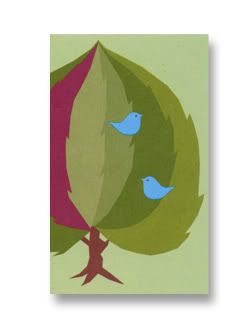 With the elections round the corner and as I see the desperate election manifestos and the barking of the politicians, I am reminded of the satirical allegory Animal Farm by George Orwell. The book examines totalitarianism and a utopia that turns dystopian. One night, all the animals on Mr. Jones’ Manor Farm gather in a barn to hear the highly regarded old Major, a pig, describe a dream about a world where all animals live free from the tyranny by their human masters. Soon after the meeting the Major dies, but the animals – inspired by his philosophy of Animalism plot a rebellion against Jones. Two pigs, Snowball and Napoleon, emerge as important figures and when Jones forgets to feed the animals, Jones and his men are chased off the farm, Manor Farm is renamed the Animal Farm, and the seven commandments of Animalism are engraved on the barn wall.
With the elections round the corner and as I see the desperate election manifestos and the barking of the politicians, I am reminded of the satirical allegory Animal Farm by George Orwell. The book examines totalitarianism and a utopia that turns dystopian. One night, all the animals on Mr. Jones’ Manor Farm gather in a barn to hear the highly regarded old Major, a pig, describe a dream about a world where all animals live free from the tyranny by their human masters. Soon after the meeting the Major dies, but the animals – inspired by his philosophy of Animalism plot a rebellion against Jones. Two pigs, Snowball and Napoleon, emerge as important figures and when Jones forgets to feed the animals, Jones and his men are chased off the farm, Manor Farm is renamed the Animal Farm, and the seven commandments of Animalism are engraved on the barn wall.The pigs, because of their intelligence, become supervisors. Napoleon, however, proves to be power-hungry stacks away the cow’s milk and the apples to feed himself and the other pigs. Squealer the pig, his ardent supporter convinces the other animals that the pigs are always moral and correct in their decisions.
Later, Jones and his men attack the Animal Farm in an attempt to recapture it. Thanks to the heroics of Snowball, the animals defeat Jones in the Battle of Cowshed. Snowball plans for a windmill, which will provide electricity and thereby giving the animals more leisure and time; but Napoleon strongly opposes the plan. When the animals decide to vote on this issue, Napoleon chases Snowball out of the Farm forever, with the help of the ferocious dogs that were sheltered by him. Napoleon announces that there will be no more debates and also orders the windmill to be built, lying that it was his own idea. In the rest of the novel, Napoleon uses Snowball as a scapegoat whom he blames as a scapegoat.
Napoleon becomes a heartless dictator, forcing “confessions” from innocent animals, and the dogs kill them in front of the entire farm. He and the pigs shift into Jones’ house and begin sleeping in beds. The other animals get less and less food while the pigs grow fatter and fatter. As one by one, the seven commandments is revised; for example, after the pigs become drunk, the Commandment, “ No animal shall drink alcohol” is changed to “ No animal shall drink alcohol in excess.”
Later, Jones and his men attack the Animal Farm in an attempt to recapture it. Thanks to the heroics of Snowball, the animals defeat Jones in the Battle of Cowshed. Snowball plans for a windmill, which will provide electricity and thereby giving the animals more leisure and time; but Napoleon strongly opposes the plan. When the animals decide to vote on this issue, Napoleon chases Snowball out of the Farm forever, with the help of the ferocious dogs that were sheltered by him. Napoleon announces that there will be no more debates and also orders the windmill to be built, lying that it was his own idea. In the rest of the novel, Napoleon uses Snowball as a scapegoat whom he blames as a scapegoat.
Napoleon becomes a heartless dictator, forcing “confessions” from innocent animals, and the dogs kill them in front of the entire farm. He and the pigs shift into Jones’ house and begin sleeping in beds. The other animals get less and less food while the pigs grow fatter and fatter. As one by one, the seven commandments is revised; for example, after the pigs become drunk, the Commandment, “ No animal shall drink alcohol” is changed to “ No animal shall drink alcohol in excess.”
Boxer, the hyper energetic horse who was a key contributor in building the Windmill was mercilessly sold to a butcher, while Squealer tells the other animals that Boxer was taken to a Vet and there he died a peaceful death – a tale that the animals believed.
Years pass and the Animal Farm expands after Napoleon buys out two fields from the neighboring farmer. Life for the animals (except the pigs) is harsh. Eventually, the pigs begin walking in two legs and imbibe several qualities of their former masters, the human beings. The Seven Commandments are reduces to a single law: “All the animals are equal but some are more equal than others.”
The novel ends with a farmer sharing drinks with the pigs in the Jones’ house and Napoleon changes the name of the farm back to Manor Farm. As the other animals watch the scene through the window, they cannot differentiate the pigs from the humans.
The novel illustrates the essential horror of the human condition – there have been, are, and always will be pigs in every society, and they will always lust for power. Though it is a universal political scenario, there is a strikingly significant allegorical resemblance to the political scenes of Tamilnadu election 2006. It is upto you to relate the characters to our aspiring leaders!
Years pass and the Animal Farm expands after Napoleon buys out two fields from the neighboring farmer. Life for the animals (except the pigs) is harsh. Eventually, the pigs begin walking in two legs and imbibe several qualities of their former masters, the human beings. The Seven Commandments are reduces to a single law: “All the animals are equal but some are more equal than others.”
The novel ends with a farmer sharing drinks with the pigs in the Jones’ house and Napoleon changes the name of the farm back to Manor Farm. As the other animals watch the scene through the window, they cannot differentiate the pigs from the humans.
The novel illustrates the essential horror of the human condition – there have been, are, and always will be pigs in every society, and they will always lust for power. Though it is a universal political scenario, there is a strikingly significant allegorical resemblance to the political scenes of Tamilnadu election 2006. It is upto you to relate the characters to our aspiring leaders!


No comments:
Post a Comment